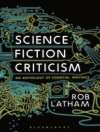The Bostonians, by
Henry James , is part of the
Barnes & Noble Classics
series, which offers quality editions at affordable prices to the student and the general reader, including new scholarship, thoughtful design, and pages of carefully crafted extras. Here are some of the remarkable features of
Barnes & Noble Classics:
- New introductions commissioned from todays top writers and scholars
- Biographies of the authors
- Chronologies of contemporary historical, biographical, and cultural events
- Footnotes and endnotes
- Selective discussions of imitations, parodies, poems, books, plays, paintings, operas, statuary, and films inspired by the work
- Comments by other famous authors
- Study questions to challenge the readers viewpoints and expectations
- Bibliographies for further reading
- Indices & Glossaries, when appropriate
Barnes & Noble Classics pulls together a constellation of influences—biographical, historical, and literary—to enrich each readers understanding of these enduring works.
Nearly a century before the birth of the contemporary feminist movement, Henry James dealt with its nineteenth-century forerunner in The Bostonians. Mixing acute social observation and psychological analysis with mordant humor, James hangs his story on a unique instance of the traditional romantic triangle. At its apex stands the vibrantly beautiful Verena Tarrant, an intense public speaker who arouses the passions of two very different people. Olive Chancellor, a Boston-bred suffragette, dreams of turning Verena into a fiery campaigner for women’s rights. Basil Ransom, a Mississippi-bred lawyer, dreams of turning her into his wife. As these two struggle for possession of Verena’s soul—and body—their confusions, crises, and conflicts begin almost preternaturally to prefigure today’s sexual politics. In fact, James’s complex portrait of Olive and her ideals, savagely satirical yet sympathetic and so controversial when it first appeared, continues to evoke both anger and admiration. But he treats Verena and Basil with equal complexity, climaxed by the novel’s quietly haunting final sentence.
Siri Hustvedt earned a Ph.D. in English from Columbia University in 1986 and is the author of a book of poetry, Reading to You; three novels: The Blindfold, The Enchantment of Lily Dahl, and What I Loved; and a book of essays, Yonder.











![Hoes van Jennifer Richards: Elizabeth Singer [Rowe] Hoes van Jennifer Richards: Elizabeth Singer [Rowe]](https://static.worldofdigitals.com/thumb_webp/931/9781351940931.webp)
